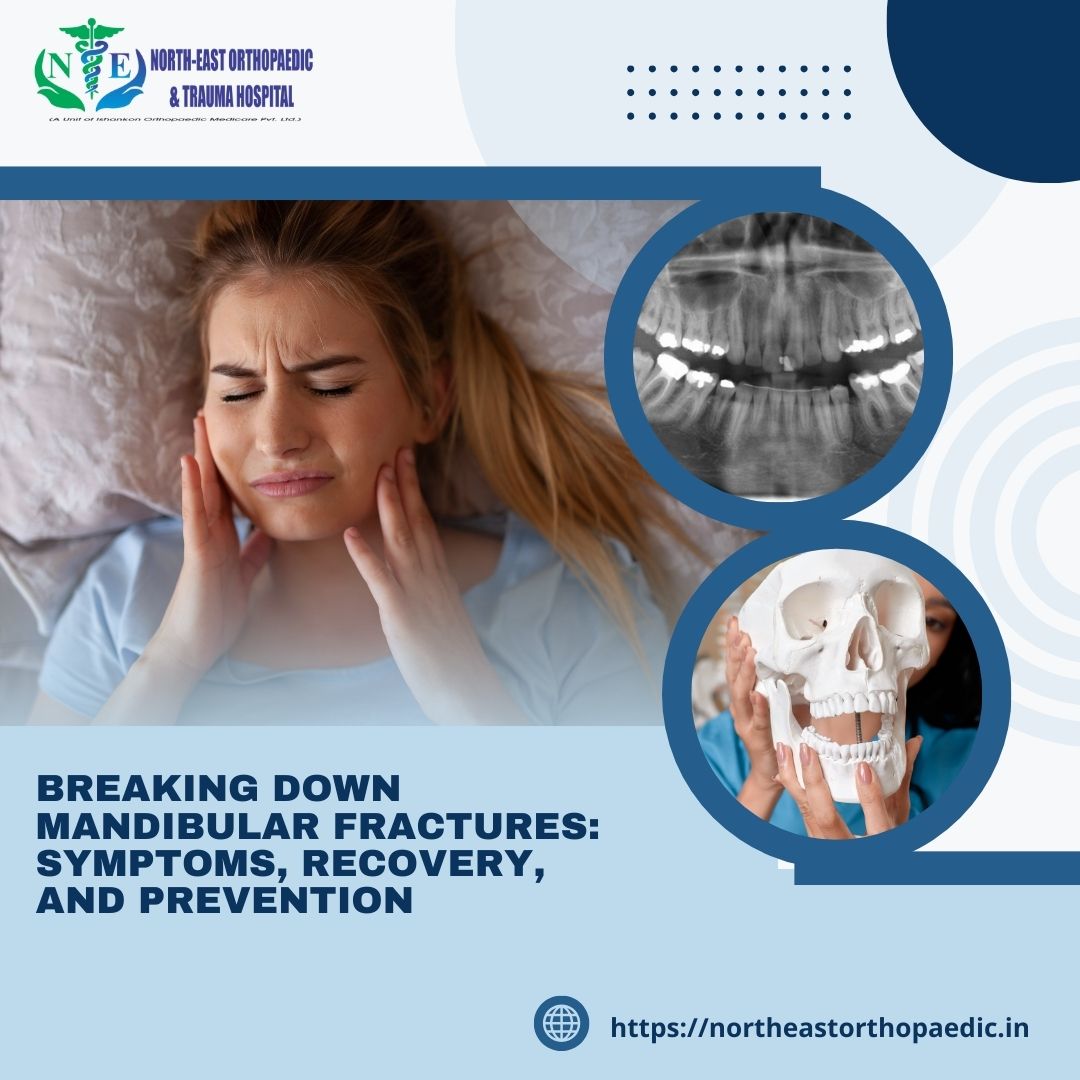A mandibular fracture, commonly known as a broken jaw, is a severe facial injury that can significantly impact a person’s ability to speak, eat, and even breathe properly. As one of the most frequently fractured facial bones, the mandible (lower jaw) is particularly vulnerable due to its prominent position. Understanding the symptoms, recovery process, and preventive measures is crucial for effective treatment and long-term health. If you’re searching for the best orthopaedic doctor to manage such injuries, this guide will help you understand your options.
What Causes Mandibular Fractures?
Mandibular fractures can occur due to various reasons, including:
- Trauma from Accidents: Road traffic accidents, falls, and sports injuries are common causes of jaw fractures.
- Physical Altercations: Direct punches or blows to the jaw during fights can result in fractures.
- Occupational Hazards: Workers in construction, factories, or physically demanding environments are at a higher risk.
- Medical Conditions: Conditions like osteoporosis or bone tumours can weaken the jawbone, making it more susceptible to fractures.
Symptoms of a Mandibular Fracture
A fractured jaw can present with various symptoms depending on the severity and location of the break. Common signs include:
Pain and Swelling: Immediate pain and swelling around the jawline are typical indicators.
Difficulty in Chewing or Speaking: A fractured jaw makes normal functions like chewing, talking, and even swallowing challenging.
Jaw Misalignment: A noticeable shift in the jaw’s position or an inability to close the mouth properly may indicate a break.
Bruising and Bleeding: Internal bleeding inside the mouth or visible bruising around the jaw are frequent symptoms.
Numbness: Nerve damage associated with jaw fractures can cause numbness in the lower lip or chin.
Diagnosis and Treatment
A proper diagnosis is essential for effective treatment. Orthopaedic and maxillofacial surgeons use clinical examination and imaging techniques like X-rays or CT scans to determine the extent of the fracture.
Treatment Options
Non-Surgical Treatment (Minor Fractures):
- If the fracture is not severe, the doctor may recommend a soft diet, pain relievers, and close monitoring.
- Jaw immobilization with elastic bands or splints may be used to aid in healing.
Surgical Intervention (Severe Fractures):
- In complex cases, surgery is required to align the bones properly using plates, screws, or wires.
- Titanium plates and mini-plates are commonly used for fixation.
- Post-surgical recovery includes pain management and a gradual transition back to normal eating habits.
If you need professional consultation, seeking the best orthopaedic doctor ensures quality treatment and a smooth recovery.
Recovery Process: What to Expect?
Recovery from a mandibular fracture depends on the severity of the injury and the treatment approach. Here’s a general timeline:
First Few Days: Swelling and discomfort are common. A liquid or soft diet is advised.
First Two Weeks: Gradual reduction in pain, but jaw movement may still be restricted.
4 to 6 Weeks: Bone healing progresses, and normal jaw functions start to return.
2 to 3 Months: Complete healing, with follow-up visits to assess the jaw’s condition.
Tips for Faster Recovery:
Follow the doctor’s dietary recommendations, focusing on soft foods.
Avoid excessive jaw movements, such as yawning widely or talking excessively.
Maintain good oral hygiene to prevent infections, especially after surgery.
Attend all follow-up appointments with your doctor.
How to Prevent Mandibular Fractures?
While accidents are sometimes unavoidable, certain precautions can significantly reduce the risk of jaw fractures:
- Wear Protective Gear: Athletes, bikers, and workers in high-risk occupations should use helmets and mouthguards.
- Drive Safely: Always wear seat belts to reduce facial injuries during accidents.
- Strengthen Your Bones: A calcium and vitamin D-rich diet strengthens bones and prevents fractures.
- Avoid Physical Altercations: Preventing unnecessary fights and confrontations can help protect your jaw.
- Be Cautious on Slippery Surfaces: Falls are a common cause of fractures, so be mindful of uneven or wet surfaces.
Finding the Best Orthopaedic Doctor
If you or a loved one has suffered a mandibular fracture, consulting a qualified specialist is crucial. The best orthopaedic doctor can provide expert treatment, whether it involves non-surgical management or complex surgery. Look for a doctor with:
- Extensive experience in treating facial and jaw fractures.
- Positive patient reviews and high success rates in surgical interventions.
- Advanced diagnostic and surgical facilities for accurate and effective treatment.
Conclusion
Mandibular fractures can be painful and disruptive, but with timely diagnosis and proper treatment, full recovery is achievable. Understanding the symptoms, seeking immediate medical attention, and taking preventive measures can significantly reduce complications. If you’re looking for the best orthopaedic doctor, be sure to choose a specialist with expertise in jaw fractures to ensure the best care.
For expert guidance, don’t hesitate to consult a professional today—your health and well-being are worth it!

